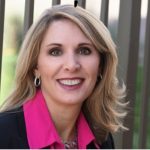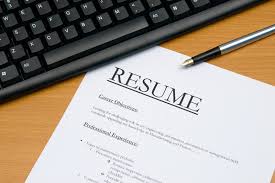Girls Scouts of America has shaped the lives of millions of girls and women who learn to live by the organization’s tenets:Courage, Confidence, and Character. Three COCPA members share how being a Girl Scout influenced them, both personally and professionally, and why they’re giving back by serving on the Girls Scouts of Colorado Board of Directors.
BY NATALIE ROONEY
Angela Roberts, CPA, managing director of Aclivity and COCPA immediate past chair, says that some of her best childhood memories center around Girl Scouts of America. A third-generation Girl Scout, she says members of her local troop grew up supporting each other, and she remains dear friends with many of them to this day. “I love everything about being a Girl Scout,” Roberts says. She describes summers spent earning badges and going to camp. And of course, there was Girl Scout cookie season. “Girl Scouts really does teach you the confidence that you can do anything.” Cookie sales, attending Anderson Camp near Sweetwater, Colo., and even taking trips to Disneyland and Washington, D.C., are all special Girl Scouts memories for Crystal Eustis, CPA, an audit partner with Plante Moran. “We had an amazing troop leader who did so much for us,” she recalls. Megan Flori King, CPA, a partner in Deloitte’s Audit and Assurance Services practice, says she enjoyed the camaraderie of Girl Scouts. “Our Girl Scouts of Colorado CEO refers to her troop as her girl tribe, which is so true of the sense of community it provides,” she says. “I was able to learn skills that you don’t experience just from going to school, which really differentiated Girl Scouts from other groups.”
While Flori King says Girl Scouts has modernized over the years to incorporate STEM and other new programs, what hasn’t changed is
the emphasis on outdoor experiences. “My family didn’t go camping or horseback riding. I wouldn’t have done those things if not for Girl Scouts.” In Colorado, with support from paid staff, roughly 5,000 volunteers team with more than 16,000 girls to plan, lead, and execute events and programming. The focus on girls leading is one of the things that Roberts loves most about the organization. “I love that Girl
Scouts is girl/women led,” she says. “The girls themselves lead and run the camps.” She became a volunteer troop co-leader during her daughter’s Girl Scout years, following in her grandmother’s and mother’s footsteps. SKILLS FOR LIFE When Roberts thinks back to what Girl Scouts taught her, teamwork is tops. “Two can go further than one, and three or four can go even further, whether it’s setting up camp, organizing a trip, or working on a project.” She also praises the confidence and spirit of volunteering that being a Girl Scout instills. Eustis says that Girls Scouts is a great leadership training ground. “Girls supporting girls leads to women supporting women,” she says. “An entrepreneurial spirit starts when you learn to sell cookies. The girls are learning how much things cost and how to set goals, forecast, plan, and execute.” Other skills that Eustis says she learned as a Girl Scout include thinking on her feet and the importance of overcoming fears and trying new things. “All of those things apply to serving on the board today,” she adds. “I’ve truly enjoyed the opportunity to learn new
skills in the board room.”
Flori King remembers how she prepared for the annual cookie sale. “We learned basic skills, how to talk to people, the math of how
much someone owed for the cookies, and then making change. It seems small, but that really resonated with me,” she says. “Girl Scouts always reminds me of the importance of community,” Flori King continues. “We win or lose together. It’s important to build that camaraderie because no one succeeds alone. We succeed with a support system around us.”
FROM BADGES TO BOARD MEMBERS
After her daughter had concluded her time as a Girl Scout, Roberts knew she wanted to go back to Girl Scouts one day in some capacity, either as a troop or camp leader. When she was approached to mentor Gold Award Girl Scouts, she jumped at the opportunity to support and
encourage girls working toward their Gold Award status. Her path to the Girl Scouts of Colorado Board of Directors began when a colleague,
who was already on the board, approached Roberts. “They needed someone to speak to the board about finance and accounting issues,”
she recalls. “Then they asked me to serve on the board.” After a year on the board, Roberts became treasurer. One of Eustis’ focuses at Plante Moran is women’s and DEI initiatives. “I’ve always had a passion for connecting and supporting women,” she says. “When the Girl Scouts Board opportunity came up, I saw it as a way to give back to girls and women outside of the office and throughout the state.”
As the current audit committee chair, Eustis oversees financial accountability, transparency, and organizational compliance. “It’s risk management to ensure that we use our resources effectively to further our mission,” she says. She also liaises with the organization’s auditors. Eustis says that in addition to being personally rewarding, serving on the Girl Scouts Board has provided her with professional growth through connections that she’s established with businesswomen from around Colorado. In her Girl Scouts role, she sits on the opposite side of the table than where her professional life usually puts her. “It provides me with a different perspective, which helps me be
a better service provider to my clients,” she says. Flori King’s route to the board was through an audit client who reached out looking for volunteers. “Of course, we want to make sure the financial statements and tax information on file are accurate and portray the true story of the organization, but it’s more than that,” she explains of her role. “We want to be smart with the money, ensure that investments make sense, and eliminate risks so the money benefits the girls.”
Each CPA says she enjoys using her skills to bring ethics, transparency, and trust to the board table along with stewardship over the organization’s financial health. “We are advisors to the board of directors on financial matters to support informed decision making,”
Eustis says.
CPAS SERVING OTHERS
Serving on a nonprofit board is a great way for CPAs to give back. “It’s a skill that nonprofit boards need,” Eustis says. “I add value by
providing accounting advice to the whole organization. It’s a great way for CPAs to get involved in the community and to contribute to personally meaningful organizations. Serving on the Girl Scouts Board has been a gratifying experience.” “I knew my Girl Scouts Board experience would be rewarding, but it has been much more so than I ever thought,” says Flori King. “With all the bad news in the world today, it’s refreshing and inspiring to go to the annual banquet and hear about what these amazing girls and women are doing to make a difference.” “It’s an organization that means a lot to me in that it’s empowering girls, giving them a community and support system outside of what they have at home, school, or other places,” Flori King explains. “As I look at how Girl Scouts has modernized over the years, it’s giving
girls such an amazing confidence and skill set that they won’t get elsewhere.” Roberts says that success isn’t always found on a financial statement. “It’s in the experience, lessons, and impact that you make, whatever your passion is,” she says. “Our goal as an organization is to give every girl the opportunity to go to camp or be a part of Girl Scouts, because there’s a difference between the girls who have these opportunities and those who don’t. We’re building courage, confidence, and character. It’s so much more than just the cookies.”
Roberts identifies her two biggest passions as Girl Scouts and her profession. “I’m lucky enough to be on the boards for both Girl Scouts and
the COCPA, and to make an impact on what’s near and dear to me.”















